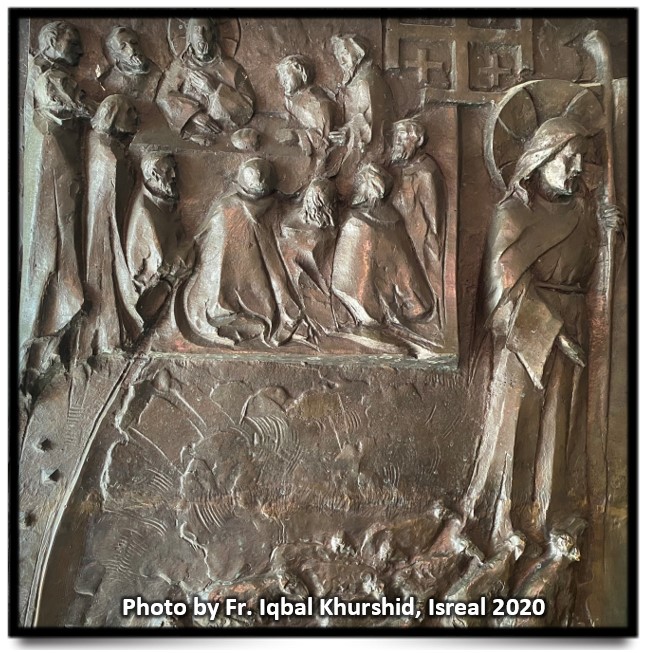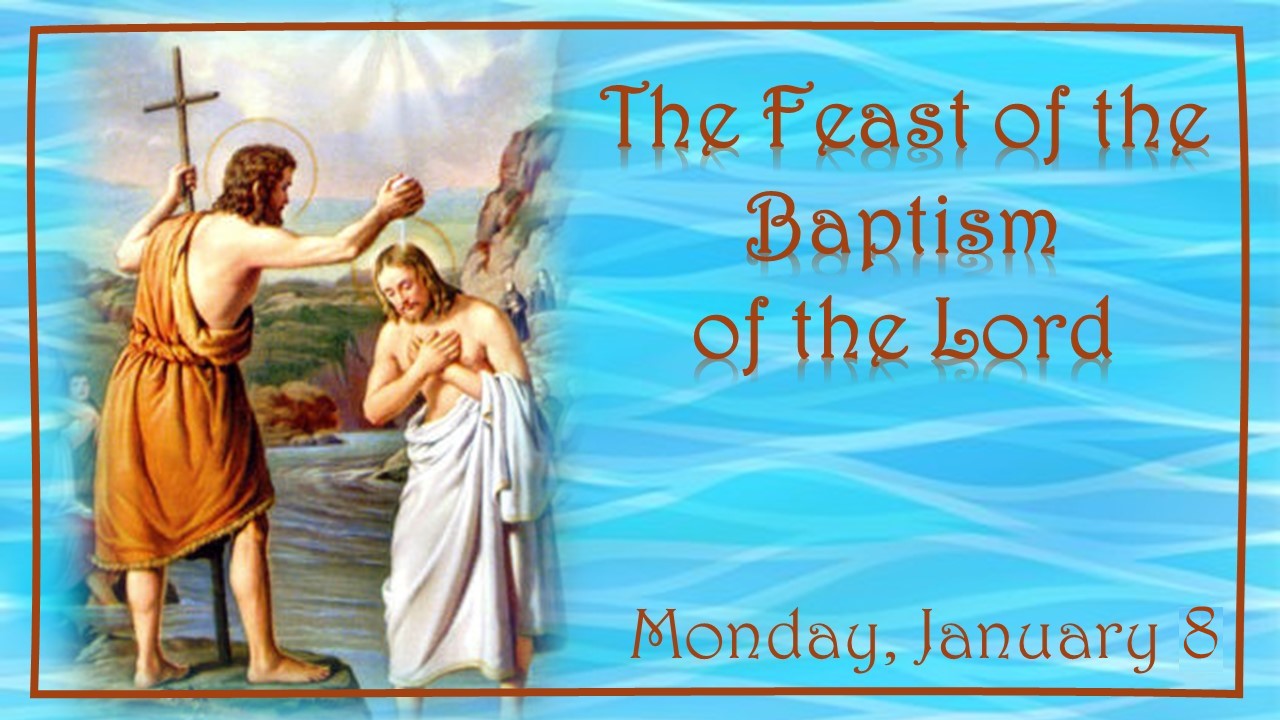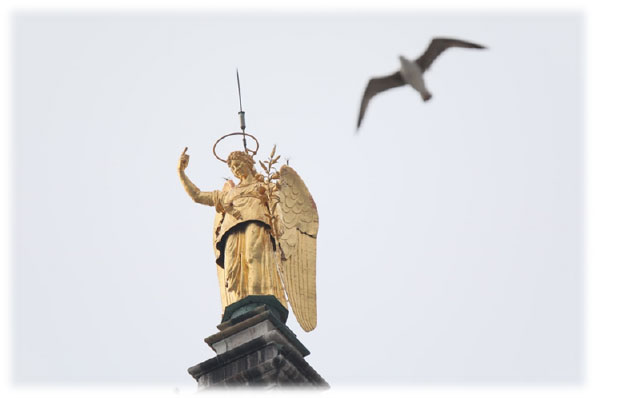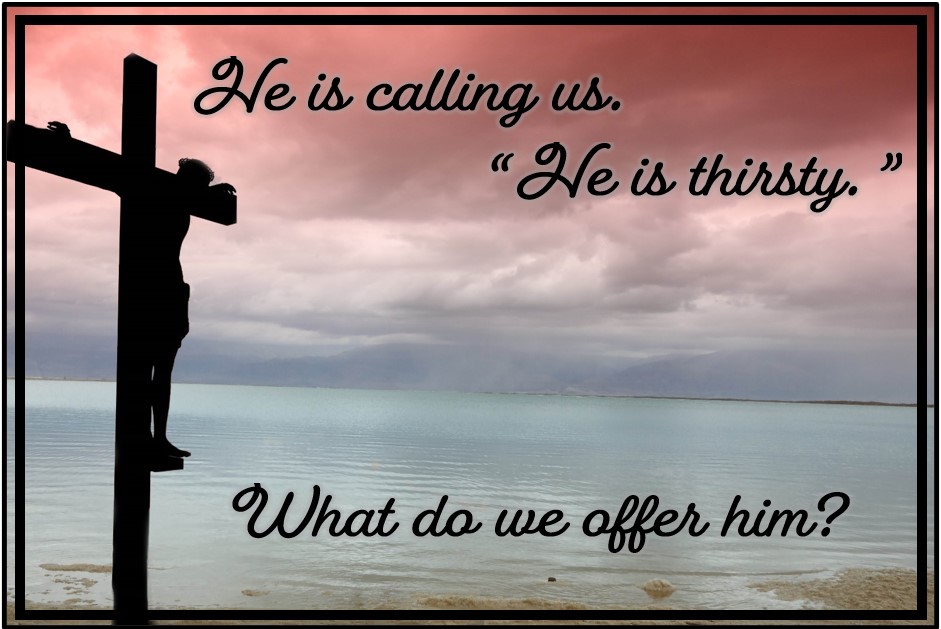
28th Sunday in Ordinary Time Year C – October 9, 2022
GOD SURPRISES US
As we have begun the month of October which helps us to walk with the Blessed Virgin Mary who is an example of thanksgiving (Please read her hymn from Luke 1:45-57) as we mark the month of Rosary which is the best weapon to fight against evil. God always surprises us with so many blessings and gifts which even sometimes we don’t request or pray for them, but God keeps showering his love, protection, healing, and care. This weekend as we celebrate Thanksgiving Day to praise the Lord for our families, friends, careers, and faith to remind ourselves that God grants everything to those who trust and fear him. (Please read Colossians 3:12-17). Let me share the following story to help us to understand the spirit of thanksgiving.
When Mrs. Klein told her first graders to draw a picture of something for which they were thankful, she thought how little these children, who lived in a deteriorating neighborhood, actually had to be thankful for. She knew that most of the class would draw pictures of turkeys or of bountifully laden Thanksgiving tables. That was what they believed was expected of them.
What took Mrs. Klein aback was Douglas’s picture. Douglas was so forlorn and likely to be found close in her shadow as they went outside for recess. Douglas’s drawing was simply this:
A hand, obviously, but whose hand? The class was captivated by his image. “I think it must be the hand of God that brings us food,” said one student.
“A farmer,” said another, “because they grow the turkeys.”
“It looks more like a policeman, and they protect us.” “I think,” said Lavinia, who was always so serious, “that it is supposed to be all the hands that help us, but Douglas could only draw one of them.”
Mrs. Klein had almost forgotten Douglas in her pleasure at finding the class so responsive. When she had the others at work on another project, she bent over his desk and asked whose hand it was.
Douglas mumbled, “It’s yours, Teacher.”
Then Mrs. Klein recalled that she had taken Douglas by the hand from time to time; she often did that with the children. But that it should have meant so much to Douglas …
Perhaps, she reflected, this was her Thanksgiving, and everybody’s Thanksgiving—not the material things given unto us, but the small ways that we give something to others.
St. Ambrose encourages us to be grateful for everything and to remember to “Offer God a sacrifice of praise and fulfill your vows to the Most High. If you praise God you offer your vow and fulfill the promise you have made. So, the Samaritan leper, healed by the Lord’s word of command, gained greater credit than the other nine; he alone returned to Christ, praising God and giving thanks. Jesus said of him: There was no one to come back and thank God except this foreigner. He tells him: Stand up and go on your way, for your faith has made you whole. The Lord Jesus, in his divine wisdom, taught you about the goodness of the Father, who knows how to give good things, so that you might ask for the things that are good from Goodness itself. He urges you to pray earnestly and frequently, not offering long and wearisome prayers, but praying often, and with perseverance. Lengthy prayers are usually filled with empty words, while neglect of prayer results in indifference to prayer.
Again, Christ urges you, when you ask forgiveness for yourself, to be especially generous to others, so that your actions may commend your prayer. The Apostles, too, teaches you how to pray; you must avoid anger and contentiousness, so that your prayer may be serene and wholesome. He tells you also that every place is a place of prayer, though our Savior says: Go into your room.
But by “room” you must understand, not a room enclosed by walls that imprison your body, but the room that is within you, the room where you hide your thoughts, where you keep your affections. This room of prayer is always with you, wherever you are, and it is always a secret room, where only God can see you. You are told to pray especially for the people, that is, for the whole body, for all its members, the family of your mother, the Church; the badge of membership in this body is love for each other. If you pray only for yourself, you pray for yourself alone. If each one prays for himself, he received less from God’s goodness than the one who prays on behalf of others. But as it is, because each prays for all, all are in fact praying for each one. To conclude, if you pray only for yourself, you will be praying, as we said, for yourself alone. But if you pray for all, all will pray for you, for you are included in all. In this way there is a great recompense; through the prayers of each individual, the intercession of the whole people is gained for each individual. There is here no pride, but an increase of humility and a richer harvest from prayer”.
St. Paul in his First Letter to Timothy says “First of all, I urge that petitions, prayers, intercessions, and thanksgiving be offered for all men, especially for kings and those in authority, that we may be able to lead undisturbed and tranquil lives in perfect piety and dignity. Prayer of this kind is good, and God our savior is pleased with it, for he wants all men to be saved and come to know the truth. And the truth is this:
God is one. One also is the mediator between God and men, the man Christ Jesus, who gave himself as a ransom for all.” This truth was attested at the fitting time. I have been made its herald and apostle (believe me, I am not lying but speak the truth) , the teacher of the nations in the true faith. It is my wish, then, that in every place the men shall offer prayers with blameless hands held aloft, and be free from anger and dissension” (2:1-10).
This Sunday’s Readings are full of God’s surprises for us. First surprise of God we see in the First Reading when a non-Jewish person is being cured from is leprosy. There are three very important lessons for us to learn and reflect upon:
First Naaman the Syrian trusts in the Man of God that is Elisha the Prophet and did what he told him to do. What about us? Do we trust in the Lord and do what he tells us to do? (Please read John 2:1-10).
Second Naaman the Syrian comes back to give thanks and firm his faith in the Almighty God the Father who has the power to grant what we ask of him because he is our Good Shepherd. Do we give thanks to God for his blessings?
Third Naaman the Syrian offers to gifts which is a way to express gratitude. What do we offer to the Lord to express our gratitude?
Thanksgiving is all about thinking about other people whether you have much to share or little to survive and that’s one of God’s surprises for us to experience. As I was searching for an inspirational story to share with you all, I came across to his story of an old man and young man who though are struggling in their ways but had a heart to share.
At noon on a dreary November day, a lonesome little fellow stood at the door of a cheap restaurant in Boston and offered a solitary copy of a morning paper for sale to the people passing. But there were really not many people passing, for it was Thanksgiving Day, and the shops were closed, and everybody who had a home to go to, and a dinner to eat, seemed to have gone home.
An old man, with a face that looked pinched, and who was dressed in a seedy black coat, stopped at the same doorway, and, with one hand on the latch, he appeared to hesitate between hunger and a sense of poverty, before going in. It was possible, however, that he was considering whether he could afford himself the indulgence of a morning paper, seeing it was Thanksgiving Day; so at least Bert thought, and addressed him accordingly.
“Buy a paper, sir? All about the fire in East Boston, and the arrest of burglars in Springfield. Only two cents.”
The little old man looked at the boy, with keen gray eyes which seemed to light up the pinched look of his face, and answered in a shrill voice, “You ought to come down in your price, this time of day. You can’t expect to sell a morning paper at 12 o’clock for full price.”
“Well, give me a cent, then,” said Bert. “That’s less than cost; but never mind. I’m bound to sell out, anyhow.”
“You look cold,” said the old man.
“Cold,” replied Bert, “I’m nearly froze. And I want my dinner. And I’m going to have a big dinner, too, seeing it’s Thanksgiving Day.”
“Ah! Lucky for you, my boy!” said the old man. “You’ve a home to go to, and friends, too I hope.”
“No, sir; no home, and no friend—only my mother.”
“It’s more lonesome not to eat at all,” said the old man, his gray eyes twinkling. “Here, I guess I can find one cent for you—though there’s nothing in the paper, I know.”
The old man spoke with some feeling, his fingers trembled, and somehow he dropped two cents instead of one into Bert’s hand. “Here! You’ve made a mistake!” cried Bert. “A bargain’s a bargain. You’ve given me a cent too much!”
“No, I didn’t, I never give anybody a cent too much!”
“But, see here!” And Bert showed the two cents, offering to return one.
“No matter,” said the old man. “It will be so much less for my dinner—that’s all.”
Bert had instinctively pocketed the pennies, but he felt bad. “Poor old man!” he thought; “he’s seen better days, I guess. Perhaps he has no home. A boy like me can stand it, but I guess it must be hard for him. He meant to give me two cents the whole time; and I don’t believe he has had a decent dinner for many a day.” “Look here,” he cried; “where are you going to get your dinner, to-day?”
“I can get a bite here as well as anywhere—it doesn’t matter much to me,” replied the old man.
“I’ll pay for your dinner!” Bert exclaimed. “Come! We don’t have Thanksgiving but once a year, and a fellow wants a good time then.”
Everyone wants a good time to enjoy his/her life but sometimes circumstances are not favorable which lead people to stress, depression, loneliness, and disconnected. We could see similar stories of the ten lepers who are living out of town and away from their families as per the commandment found in the Old Testament. The Gospel does not speak about their age or families but only one desire is to be cleansed and turn back to their homes. However, their attitude changed after the healing, and they forgot to thank the Lord except one.
That’s why Sunday’s Gospel invites us to acknowledge God’s gifts with wonder and gratitude. On the way to his death and resurrection, Jesus meets ten lepers, who approach him, they keep their distance and tell their troubles to the one whom their faith perceived as a possible savior: “Jesus, Master, have mercy on us!”. They are sick and they are looking for someone to heal them. Jesus responds by telling them to go and present themselves to the priests, who according to the Law were charged with certifying presumed healings. In this way, Jesus does not simply make them a promise; he tests their faith. At that moment, in fact, the ten were not yet healed. They were restored to health after they set out in obedience to Jesus’ command. Then, rejoicing, they showed themselves to the priests and continued on their way. They forgot the Giver, the Father, who cured them through Jesus, his Son made man.
All but one: a Samaritan, a foreigner living on the fringes of the chosen people, practically a pagan! This man was not content with being healed by his faith but brought that healing to completion by returning to express his gratitude for the gift received. He recognized in Jesus the true Priest, who raised him up and saved him, who can now set him on his way and accept him as one of his disciples. To be able to offer thanks, to be able to praise the Lord for what he has done for us: this is important! So, we can ask ourselves: Are we capable of saying “Thank you”? How many times do we say “Thank you” in our family, our community, and in the Church? How many times do we say “Thank you” to those who help us, to those close to us, to those who accompany us through life? Often, we take everything for granted! This also happens with God. It is easy to approach the Lord to ask for something, but to return and give thanks… That is why Jesus so emphasizes the failure of the nine ungrateful lepers: “Were not ten made clean? But the other nine, where are they? Was no one found to return and give praise to God except this foreigner?” (Lk 17:17-18). Significantly, Naaman and the Samaritans were two foreigners. How many foreigners, including persons of other religions, give us an example of values that we sometimes forget or set aside! Those living beside us, who may be scorned and sidelined because they are foreigners, can instead teach us how to walk on the path that the Lord wishes.
If we trust in the Lord during our times of sadness and happiness, God will surprise us with the blessings we never expected because he knows what we need as he has given two boxes to carry.
I have in my hands two boxes,
Which God gave me to hold.
He said, “Put all your sorrows in the black box,
And all your joys into the gold.”
I heeded His words, and in the two boxes
Both my joys and sorrows I stored,
But though the gold became heavier each day,
The black was as light as before.
With curiosity, I opened the black.
I wanted to find out why,
And I saw, in the base of the box, a hole
Which my sorrows had fallen out by.
I showed the hole to God and mused,
“I wonder where my sorrows could be?”
He smiled a gentle smile and said,
“My child, they’re here with me.”
I asked God why He gave me the boxes,
Why the gold and the black with the hole?
“My child, the gold is for you to count your blessings.
The black is for you to let go.”
On this thanksgiving weekend let us trust in the Lord that he will give us what we need in our lives.
Happy Thanksgiving to Everyone
Other Sermons In This Series

Feast of Baptism of the Lord, Year B ~ January 8, 2024
January 05, 2024

He Protects Us | November 14, 2021
November 14, 0201

3rd Sunday of Lent Year A ~ March 12, 2023
March 10, 2023

